Mandi Bean's Blog
February 28, 2025
On Needing Self-Discipline
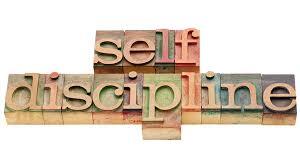

Elizabeth Gilbert has a book about creativity called Big Magic. PopSugar calls it, “A must read for anyone hoping to live a creative life….” So naturally, I read it. I think the book is definitely a solid read for anyone currently living or trying to curate a creative life. I was going back through my annotations to see if there was anything from the book that I could use for my Creative Writing class. I was skimming and scanning all the different passages I had highlighted lots of different parts, but this one jumped out at me:
Tormented Artist:
– Drink as much as you possibly can
– Sabotage all your relationships
– Wrestle so vehemently against yourself that you come up bloodied every time
– Express constant dissatisfaction with your work
– Jealously compete against your peers
– Begrudge anybody else’s victories
– Proclaim yourself cursed (not blessed) by your talents
– Attach your sense of self-worth to external rewards
– Be arrogant when you are successful and self-pitying when you fail
– Honor darkness above light
– Die young
– Blame creativity for having killed you
And Gilbert writes, “It works great. Until it kills you.”
When I look at that list, there are a couple of items that especially stand out because I’m guilty of them. I mean, I definitely enjoy drinking. As a matter of fact, I’ve been more of a menace in my 30s than I ever was in my 20s. I wouldn’t say I sabotage all of my relationships, but — as evidenced by recent blog posts — I definitely don’t always choose the best relationships to exert my time and energy on.
The third item on the list really knocked me on my ass, though: Wrestle so vehemently against yourself you come up bloodied every time. I am — without a doubt — my own worst enemy. One of the first times I felt really seen by my mom was when she told me the song “Don’t Let Me Get Me” by P!nk reminded her of me. I try to be kind to myself. I was walking five miles five times a week for my physical and mental health, but I haven’t met that goal in weeks. I say it’s for my mental health, that I deserve to rest, that I have a lot going on. But those are excuses more than they are reasons, and I end up just rotting on the couch.
I think there’s a fine line between self-care and self-indulgence, and the latter almost always leads to self-destruction.
I think I need to get better at self-discipline. Sure, the idea of being a tormented artist has been romanticized and there are countless examples. Hell, Oscar Wilde called the artistic existence “one long, lovely suicide.” But if I want to write damn good stories and fall in love and see the world and suck the marrow out life, then I can’t submit to every inclination to be lazy. There has to be a balance.
On a seemingly unrelated note, one of the best compliments I’ve ever received was that I’m an open book. I’m proud of my utter inability to be fake. I would never want anyone spending precious time wondering how I feel about them.
The post On Needing Self-Discipline appeared first on mandi bean: writer.
February 21, 2025
On Having a Rough Go

I’ve been having a really rough time getting out of bed in the morning. There’s a lot of uncertainty concerning a very good friend, and the not-knowing anything is eating me alive. I walk around all day with a lump in my throat. I can’t sleep. I have trouble eating.
Maybe I should be writing about it.

There’s an article on the website for Writer’s Digest titled “7 Ways Writing Heals Us—Even After Terrible Trauma” by Barbara Nickless. She’s a published author and a creative writing teacher who predominantly works with veterans struggling with post-traumatic stress disorder. She’s also had her fair share of tragedy in her personal life, so she’s writing from lived experience and a credible position of authority. As if that wasn’t enough, she includes the hard data that proves writing has healing powers:
The science is real: Writing helps us manage our response to trauma. It boosts our immune system. Multiple studies conducted by scientists like James Pennebaker and others have shown the success of a writing practice in coping not only with trauma, but with day-to-day depression and anxiety. Writing returns a sense of control to our lives when they’ve been torn apart.
She goes on to explain — in detail — the seven ways writing can help us heal.
Processing our thoughts and fearsNickless writes, “Writing in all its forms helps us process our experiences and make sense of them. Because we’re narrative creatures, even a chaotic dump of thoughts, memories, to-do lists, ideas, goals, and more will begin to organize itself the more we write. We’ll find the narrative thread amidst the chaos and fill in the details of broken memories. This ultimately allows us to form a coherent life story.” I think this has been really important for me lately. I’ve been ensuring to write down what I’m hearing and thinking and feeling about all the uncertainty so I can try and piece things together and make sense of a bizarre situation.
Learning self-regulation
Nickless writes, “Writing helps us regulate our emotions and move toward calm.” This is undeniably true. When I get all the swirling thoughts down on paper and out of my head and out of my heart, I honestly feel better.
Using catharsis
Nickless writes, “Catharsis—κάθαρσις in ancient Greek—means “cleansing” or ‘purification,’ especially of negative emotions.” I’ve caught myself almost crying by the copier at work, or in the bathroom, or even at my desk. I can take a few deep breaths and write down some things in my journal and keep the tears at bay.
Managing triggers
Nickless advises, “Grab your journal or open your short story and capture your emotions on the page before they spiral out of control.” I am a BIG spiraler — my mind goes to worst case scenario in less than 60 seconds. Writing slows that downward trajectory down and forces me to consider each word I’m putting down on paper, so I have a better grasp on what’s improbable, what’s dramatic, what’s unfounded.
Finding purpose
Nickless writes, “One of the best ways to build resilience and create the meaningful life that trauma threatens to take from us is to have a purpose that extends beyond our day-to-day. When we commit to completing a writing project—however small or large—we find direction and momentum.” This blog post has been helpful, and I’ve recently been considering diving back into my larger work-in-progress and going to public spaces to write. It makes the project more tangible if I have to pack my bag and get in the car (or take a walk), and staying busy and producing meaningful material also helps to stop the spiral and rescue me from the mire of my thoughts.
Creating community
Nickless writes, “When we share our writing, whether as blog posts, short stories, essays, or novels, we’re reaching out and touching other lives, other minds, other hearts. And they are touching ours.” I was so incredibly touched by the comments and the number of people who reached out privately to talk to me about the blog post about my dad’s experience with the USCGC Blackthorn tragedy. And more people read my blog about my bad taste in men than I expected. What a privilege it is to have people spend their valuable time reading my writing.
Enjoying distraction
Nickless writes, “Rather than numbing ourselves with Netflix or alcohol, creating a story or crafting an essay can take our minds off our troubles, at least for a time.” And this is what I really need to get out of my writing at this moment in time — I desperately need the distraction. Escaping into a fictional world where I can know everything and control what characters say and do and think would be a great relief.

The post On Having a Rough Go appeared first on mandi bean: writer.
February 15, 2025
Taste in Men

My oldest sister, who is incredibly wise and unbelievably strong, recently told me I have terrible taste in men.
I don’t think I can say she’s wrong, and what’s worse, I think it bleeds into my writing. I create characters who really are terrible men … but within the fluid rules of a narrative I have created, I can manipulate my readers into thinking otherwise.
Maybe.
Unless my readers are smarter than me, which is likely true more often than not.
Let me illustrate the point with examples from my reading life (to save me the embarrassment of the plethora of examples in my personal life). After all, ALL writing benefits from examples.
I’m re-reading Charlotte Bronte’s classic Jane Eyre with my juniors as I teach the novel. I’m definitely having more fun than they are, but alas, that is a sensation I (and many, many other literature teachers) have definitely become used to.
We just started the part where Jane arrives at Thornfield and meets Mr. Rochester, who just happens to be one of my favorite fictional characters of all time. Some modern critics have diminished Rochester as problematic and have categorized him as more of a villain than anything else … which drives me crazy.
Mr. Rochester, if he absolutely needs to be limited to a single category, is a Byronic hero. Byronic heroes get their name from Lord Byron, who often used intelligent, arrogant characters with dark pasts in his works. Byronic heroes are also conflicted, mysterious, rebellious, self-destructive, and often challenge the traditional notions of heroism. In short, they can be problematic.
But this is where author intent/purpose needs to enter the critical discussion. Charlotte Brontë did not want the reader to hate Mr. Rochester — she wanted the reader to love him as Jane does. Brontë builds Jane into a confident, successfully, happy woman through her struggle in understanding and loving Rochester. There is a rejection and an ultimately satisfying reunion not because Jane is blind to his “red flags,” but because she makes a decision to love him because she wants to. It’s as simple and complicated as that.
Mr. Rochester is certainly one of my favorite fictional characters of all time, second only to Jay Gatsby. I wanted to explain how F. Scott Fitzgerald’s titular hero is of the Byronic category only to discover in my research that … GATSBY IS AN ANTI-HERO??!!?!?
Color me shocked.
The biggest difference between Byronic and antiheroes is that antiheroes are the bigger red flags. They absolutely lack the traditional characteristics that are associated with traditional heroes. Gatsby is great, undoubtedly, but he did lie and have an affair with a married woman and have illegal connections with organized crime.
In my opinion, that’s what makes these characters so engaging and beloved and timeless. They’re complex and complicated, almost like real people are.
But luckily, it’s only almost.


When red flags jump from the page to real life, it can be hurtful and dangerous. What are red flags, exactly? According to a user on Quora, “Red flags are warnings that come from an event or a pattern of events. These can be micro behaviors. Red flags let you know when one of your boundaries has been crossed or you have a feeling in your gut.”

Apparently, according to Wendy Rose Gould writing for Very Well Mind, there are 13 Red Flags that should send you running for the hills:
Drug Addiction & AlcoholismThis one is obvious. Someone with an addiction likely hasn’t “…yet figured out how to cope without altering their mental state.” While this can make for an interesting character arc or emotionally charged scene, it can be exhausting and heartbreaking in real life.
Violent Displays
Again, this one is obvious. Someone who acts out violently likely hasn’t “…developed a healthy way to properly channel their emotions. In some cases, it could also be indicative they lack empathy for others.” That lack of empathy is also why you shouldn’t date someone who doesn’t read. Seriously.
Mismatched Relationship Goals
This red flag isn’t a personal issue that needs to be worked on, necessarily, but i certainly is a red flag for the relationship. If a couple can’t agree on whether to get married or have kids, or if they can’t reach a consensus about where to live or how to spend money, it might be time to walk away from the relationship.
Persistent Jealousy & Distrust
What can be interpreted as special, constant attention, or overboard generosity, can actually be signs of a control problem from a desperately insecure partner. You know that saying if you’re thinking of red cars, you’ll see red cars? That’s especially true in the beginning of a relationship when you want everything to be wonderful and perfect, so you make it so. However, this is at the expense of recognizing hurtful, problematic behavior that warns of trouble ahead.
History of Infidelity
I’m a hopeless romantic, so I believe people can change. I am constantly giving people I care about the benefit of the doubt. And honestly, nine times out of ten, it works out. I’m so blessed to have good people in my life. But — that’s not to say I don’t consider someone’s past. Can I absolutely trust someone with a history of cheating? That’s a question we all need to ask ourselves because successful, healthy relationships require absolute trust.
Controlling Nature
“Rethink your relationship if your partner tries to control who you see, who you talk to, where you go, how you spend your money, what you do online, what your body looks like, what you eat, or even what you wear.” The one thing I’ll say about myself is that I will not stand for this kind of behavior. If you tell me I can’t do something, it only makes me want to do it more. Maybe it’s the result of being single and living alone for so long, but I’ll be damned before someone tries to tell me what to do. I’m so repulsed by this behavior that it doesn’t really show up in my writing, not even when I’m writing villains.
Stories of “Crazy Exes”
There are certainly crazy people in the world, but when every single ex-partner is crazy, that actually tells you more about the person rehashing the relationships than it does about the exes. “This sort of perspective deflects any responsibility and demonstrates a lack of respect for the people they once cared for and loved.”
No Friends
Wendy Rose Gould, the author of the article, writes, “If your partner struggles to make and maintain relationships, this could indicate you will also struggle to connect with them.” And to give this further validity, the first time I heard about this particular red flag was years ago. I know I said I was going to avoid personal examples, but oh well; here we go.
I was sitting and watching a baseball game with the most toxic woman I’d ever met, sipping on Slurpees spiked with vodka. She lowered her sunglasses and explained how the guy I liked at the time was actually a loser because he didn’t bring any plus ones to a group hang out in Asbury. She ended up being a total narcissist, but I think she was right about this flag.
They Give You All Their Time
What might at first seem like devotion is more likely a red flag. “When a partner doesn’t have other relationships, hobbies, or goals, that is a recipe for an unhealthy, unfulfilling relationship.” There’s now all this pressure to be everything for the other person, and that’s a kind of pressure no one can live up to (coughDAISYBUCHANANcough).
Lack of Emotional Intimacy
“A partner who shows no interest in opening up and bonding is a death knell for a relationship.” One more personal example: I once confessed to a man I was in love with him, and he told me to “stop being gay.”
Gaslighting
This term is thrown around a lot — and often misused — but in its simplest terms, it’s “when a person says and/or does things to make you question your own sanity.” And this is not limited to romantic relationships — I’ve had “friendships” where I was gaslit to believe I was misinterpreting hurtful actions to keep me stupid and stuck and compliant.
Love Bombing
I feel like this is the most dangerous red flag on this list because it can be the most deceptive and manipulative. “People with narcissistic3 or borderline personality disorders, among others, typically engage in love bombing—manipulatively showering someone with praise and affection to gain (or regain) trust quickly.” To be honest, I’m kind of a dope when it comes to people. One of my favorite people on the planet has repeatedly told me I’m a terrible judge of character because I see the best in people … which makes me an excellent victim for this kind of behavior. “Oh, but they’ve been so nice” will be my dying exclamation.
Breadcrumbing
If Love Bombing is the most dangerous red flag on this list, Breadcrumbing is the most hurtful (in my humble opinion, of course). “Someone who is breadcrumbing is leading you on with little morsels of encouragement—just enough so you don’t give up on the relationship. Move toward this person and they’ll move away. But if you withdraw, the person will ramp up their breadcrumbing again. A breadcrumber doesn’t like or intend to commit.” Just reading this definition makes me want to burst into sobs and delete a few numbers from my phone.
So who is your favorite fictional walking red flag? Mine is probably Mr. Edward Fairfax Rochester of Jane Eyre … only because I refuse to admit Jay Gatsby is problematic in any way, shape, or form. And then there’s always Edward Cullen from the Twilight saga. I recently saw the first film in the series when it was rereleased in theaters and though the plot is atrocious and our protagonist leaves much to be desired, Edward Cullen remains an enchanting Byronic hero.
The post Taste in Men appeared first on mandi bean: writer.
February 6, 2025
Facing February
As 2025 marches on, I’m pausing to take stock of my reading life and writing life. I promised myself I would prioritize my health and my writing in 2025. I’m very pleased to report that focusing on my health is going fairly well. I mean, there are days I don’t move and treat my gut like a garbage disposal, but those days are definitely occurring with less frequency.
Reading LifeBefore I get into my writing life, let’s talk about my reading life. I’ve been asked to be a beta reader for two enormously talented friends; what an honor and a privilege. I’m definitely more eager to start those works than I am to continue reading Hunger by Knut Hamsun. It was a mistake picking up this book. I only purchased it because it was mentioned in the novel Writers & Lovers by Lily King, and I LOVED that novel, so I wanted to make it my *entire* personality. I wrote down every title mentioned, so hopefully this one is the only dud. The plot lacks energy, the narrator is annoying, and there is nothing for me to be emotionally invested in. I’ve read most of it, though, so I’ll finish it and move on.
I’m re-reading Salem’s Lot by Stephen King. I recently watched the most current adaptation and was entertained but simultaneously disappointed. It’s a fun, entertaining film, but ultimately, it fails as a faithful adaptation because the setting and the protagonist are severely shortchanged for the sake of chills and thrills.
And there’s nothing quite like old school Stephen King to get me energized about my writing life.
Which, I am sad to say, hasn’t been taking off the way I planned it would in 2025.
Writing LifeThere are some things to get excited about. For starters, I entered a writing contest from High Frequency Press. Winners receive $1500, will be published by HFP, and receive 25 copies and publication plus film and television agent referrals. I submitted Lightning Strikes, naturally. Wish me luck!

Something else to get excited about: I’m teaching Creative Writing this upcoming semester, and I am very excited. We’re starting with Georgia Heard’s Heart Mapping. Whether they knowingly follow the dictum or not, I believe all writers end writing what they know. But some of the things we know are bred from trauma and are not necessarily things we want to write about. Heart mapping helps writers come to term with what’s fair game and what’s off limits.
I hope these specific endeavors help ignite my writing life. I haven’t really written in a couple of weeks now. I was reading this Writer’s Digest article, “Creative Curiosity: Reclaiming the Joy of Writing” by Sarah Selecky and possibly identified the cause.
In my intense focus on getting published, I’d stopped listening to what made me curious and alive as a writer — Sarah Selecky
I’ve been hyper-focused on getting my manuscript published and/or finding an agent for my work that I haven’t been doing any work. I’m very optimistic that teaching creative writing again and becoming a beta reader will lead to creative opportunities and to more discussions about writing with writers. I think I also need to get back into Chuck Palahniuk’s Substack.
But most importantly, I need to be writing more — and not just longer pieces, but snippets of ideas that capture my imagination and let me use my writing muscle.
 She looks so elegant. How old do you think she is? Gah, that’ll send me spiraling.
She looks so elegant. How old do you think she is? Gah, that’ll send me spiraling.The biggest lie I tell myself is that I don’t have any time. I blame my lack of productivity on mental exhaustion from work. This article proves I’m a liar. In “5 Tips on Pursuing Your Writing While Holding Down a 9-to-5 Job,” Caroline Wolff offers practical advice to making time for writing despite being a full-time employee.
Work on your draft every day.Wolff actually quotes fantasy writer Leigh Bardugo’s personal motto: “begin as you mean to go on.” Wolff explains, “…that means dedicating a small amount of time every day to a goal she’s passionate about pursuing throughout the new year.” Apparently, Bardugo believes just 15 minutes a day is all a writer needs to commit to make writing a habit more than a chore. And 15 minutes is a measurable, attainable goal for someone with a full-time job.
Treat everything as material.
As Nora Ephron said, “everything is copy.” All writing is autobiographical, even if it’s fantastical. Writers what they know because lived experiences become the gold mine for inspiration. I carry a journal with me everywhere and jot down the interesting things that happen to me or that I observe. I’ve done this since middle school and I’ve literally filled dozens of notebooks with material. It might be worth giving these “literary” time capsules a look for some inspiration for my current work in progress, or for some new ideas.
When you can’t find time to write, read.
Stephen King — our favorite Uncle Stevie — famously wrote in On Writing, “If you don’t have time to read, you don’t have the time (or the tools) to write. Simple as that.” I need to read more.
Create boundaries around your time.
I think every writer, at one point or another, becomes dangerously close to being obsessed with the writing routines of other more successful, more established writers. I know I definitely labored under the delusion that if I did exactly what Stephen King, Kurt Vonnegut, Joan Didion, or Ursula K. LeGuin did, I’d unlock my creativity, produce an irresistible manuscript, and be rich and famous.
Obviously, that’s NOT how it works. I need to find my own routine, discover what works, and be resilient.
Make time to rest.
What’s that famous saying? “If you don’t make time to rest, your body will make it for you.” If you’re not well-rested, hydrated, and well-fed, you’re no good to anyone.

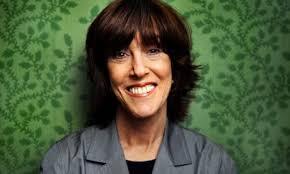
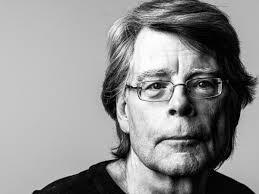
I hope this information helps another writer trying to get his/her shit together in 2025. Let’s be there for each other — comment and start a conversation 
The post Facing February appeared first on mandi bean: writer.
January 27, 2025
Rejection —> Desperation?
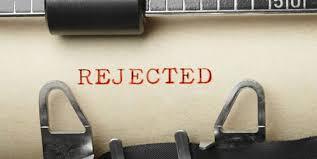
My goal for this year, which is not even a month old, is to get my completed manuscript — titled Lightning Strikes — published. Ideally, this would be accomplished through a literary agent, who would afford me access to bigger publishers who tend to have larger marketing budgets and can submit works for awards. Overall, I really believe landing a literary agent (or, at the very least, a reputable publisher) would do *wonders* for my writing career.
But I’ve had no success. My most recent rejection came from a reputable, larger press … and featured the wrong name.

 Screenshot
ScreenshotTo be honest, that really doesn’t do a lot for my confidence, nor does scrolling through the many, many rejections I’ve received.
Look at all these rejections! Is keeping a spreadsheet of them masochistic?In an act of — inspiration? desperation? — I reached out and queried my publisher of my latest novel, Moody Blue. They’re called GenZ Publishing, and while they are a small press, they did more to help me with marketing than my first publisher (who was wonderful but brand new and tiny). And now I know even more about publishing and have more time and resources to devote to marketing. Isn’t it better to have new work available and work my ass off to get as many readers as possible than to just wait for rejection? I think so, but it does feel like abandoning my goal and settling for less than what I want.
The universe, as always, offered up an answer.
I stumbled across this article from Writer’s Digest. It’s called “Finding Strength in Rejection: Turning Setbacks Into Success as a Writer” by Deanna Martinez-Bey. She gives tips on “…how to handle rejection gracefully and grow stronger along the way.”

Deanna Martinez-Bey says the first step in handling rejection is to Understand That Rejection Is Normal. You can do this through two tips:
Tip 1: Remind yourself that rejection is part of the process.
Tip 2: Celebrate that you’re putting your work out there, which takes courage and strength.
This feels easier said than done. Corny though it may sound, I’m seriously considering writing these on sticky notes and putting them on my bathroom mirror so these truths literally stare me in the face every morning.
Separate Yourself From Your Work
Tip 1: Remember that rejection is an opinion, not a verdict.
Tip 2: Focus on improving your craft rather than dwelling on the negative response. Allow the
negative to propel you into positivity!
Again, this feels impossible for me. I put so much of myself into everything I write that my work is an integral part of me. That being said, I do like the suggestion of shifting the focus from the negative response to improving my craft — do more reading and writing, and really just throw myself into the work.
Look for the Lessons
Tip 1: Identify any helpful suggestions in the rejection.
Tip 2: Use the insights to strengthen your next draft or target more appropriate publishers/agents.
Unfortunately, most of my rejections have been form letters. Fortunately, those that haven’t been, haven’t rejected the work based on its quality. This is a good reminder, though.
Create a Rejection Ritual
Deanna Martinez-Bey says, “A simple ritual to process rejection can help you bounce back faster and easier.”
Tip 1: Allow yourself a short time to feel disappointed—it’s okay to be upset.
Tip 2: To reset your mindset, do something positive, like treating yourself to a coffee or your
favorite treat.
I am ALWAYS looking for a reason to treat myself. Consider this suggestion taken.
Lean on Your Support Network
Tip 1: Connect with fellow writers or supportive friends who can empathize.
Tip 2: Use their encouragement to help you move forward.
I am still in nearly daily contact with my friends from Ireland who I met in the Creative Writing program. I still email with fellow writers from conferences I’ve attended, so I have a support network I can lean on. I actually reached out to my good friend Joe and my most trusted beta reader when dealing with the quandary of returning to the small presses or continuing to pursue an agent.
Keep Putting Your Work Out There
Tip 1: Submit your work to multiple outlets to increase your chances of acceptance.
Tip 2: Set monthly goals for how many submissions you’ll make to stay proactive.
I’ve been planning on sending out queries to the agents who prefer “snail mail” while waiting for a response from GenZ Publishing. According to Deanna Martinez-Bey’s tips, this seems like a good idea.
Protect Your Mental Health
Tip 1: Practice self-care through activities that bring you joy and relaxation.
Tip 2: Remind yourself of your achievements and why you started writing in the first place. Don’t
lose sight of your “why.”
I think this suggestion is really important for me because I do have a tendency to spiral. I don’t know how to stop the metaphorical bleeding. I assume that if one agent rejects the work (and over 100 agents have rejected my writing at the point, I think), then the work is shit and I’ve always been wrong about being writer and I’ve wasted so much time and now I’m embarrassed. And depressed because I’m talentless and delusional.
THAT’s how you spiral, ladies and gentlemen.
As I was drafting this post, I actually made a plan to do a slight rewrite/experiment with Lightning Strikes. Stay tuned, readers.
The post Rejection —> Desperation? appeared first on mandi bean: writer.
January 20, 2025
Writing Relationships: Mining Family Histories
Recently, I finished reading The Joy Luck Club by Amy Tan, which I highly recommend. It was filled with gorgeous writing and was a dynamic exploration of mother/daughter relationships and what it means to be a woman: the assumptions, expectations, internal struggles, triumphs. I thoroughly enjoyed it and when the happens with literature, I start thinking about what I learned and what I can take. I ask myself, how can I make this mine?
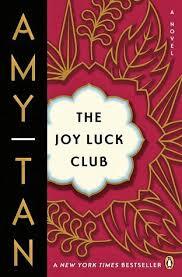
As a writer, I do believe in at least starting with writing what I know (or what I think I know). It should follow, then, that I’d write more about — or at least be inspired by — what’s actually happened to me and my family. I have some aunts and uncles who keep telling me I’ve got to write about the family. It’s true there’s lots of material. For starters, my mom is one of ten children and the stories her brothers and sisters share over drinks and cigarettes and classic rock on the radio at family parties are hilarious, heartbreaking, and unbelievable. And my dad is one of six children, raised in Alabama, and he’s flat out told me his life would make one hell of a story.
I think my relatives are absolutely right, but I’m hesitant to write their stories. Their stories would stop belonging to them as soon as I put pen to paper. The happenings would be colored by my interpretation, and what if something crucial was lost in that kind of translation? I’d hate for someone I love to frown and tell me, “That’s not it. That’s not how it happened at all.”
My dad is a character I’d love to faithfully get down on paper. I was visiting with him and the rest of my family in Florida over the holidays. While I was visiting, I went with Dad to pick up my brother and his wife and their baby from the airport in Tampa; they flew in from out-of-state for the holidays. Our route took us over the Tampa Bay Sunshine Skyway Bridge.
My dad and I traveling over the Tampa Bay Sunshine Skyway BridgeIt was absolutely beautiful.



It was also right by the memorial for the USCGC Blackthorn, a coast guard ship that sank in 1980. I’d never heard of the tragedy and had no idea the memorial existed, even though Dad was in the coast guard. As we unknowingly neared the memorial, Dad told me he actually helped with the rescue and recovery efforts. He thought there was a memorial somewhere nearby and sure enough, we started seeing signs. We pulled over.





My dad talks a lot. He’ll talk to anyone about anything. It’s fortunate he has so many captivating and engaging stories to tell, but he’s kind of funny about when he chooses to share them. His story about the sinking of the Blackthorn came out of nowhere. I mean, I consider myself close to my dad, but I had no idea that on January 28, 1980, he was eating breakfast at Denny’s when the tragedy of the USCGC Blackthorn came on the news. He left immediately. Apparently, there was hardly anyone there, just a skeleton crew, so he went out with Army Corps of Engineers on their landing craft.
It was dark, but he could see other boats picking people up in the water. When they reached the Blackthorn, the ramp was lowered down, and they got to work right away. He was able to get to the scene quick, just by luck, and he beat the local police and other first responders there. The other people there helping might have been just regular people, volunteers off the street, because there wasn’t a large police or coast guard presence until the daylight came. In the morning, Dad told me you could see the ship on its side in the water, and you could see the bodies and the cars. The USCGC Blackthorn had just completed on overhaul at the Gulf Tampa Drydock Company and was outward bound.
The divers started bringing bodies up. Dad could hear the hard-hat diver talking over the radio. He said, “I found one.” The man was holding onto the railing. He’d been coming through a doorway, but his lifejacket got hung up on the door. He was trapped and drowned. The hard-hat diver handed my father the body, and my dad put the body in a rescue litter. More and more bodies were brought to the surface. Some were standing straight. Some were sitting down. Some looked like they’d had just gotten out of the shower with towels around their waist. The one thing they had in common was that they were stiff and their eyes were wide open. Dad told me he remembered looking up one time on the flight deck. All the bodies were there because the medical examiner was doing her investigation, but it looked like a party. Few bodies were laying flat and some even looked like they were running. “I guess that’s the last thing they did,” Dad said. Some had nothing on, but some were wearing towels, uniforms, lounging clothes; the disaster had come out of nowhere and caught them all off guard. My dad participated in many other rescues and recoveries, but he told me this one stands out because the victims were all “coast guard guys.”
My dad spent two days at the scene, helping bring bodies up. It could have been longer; it wasn’t easy to measure time. He’d sometimes take a break and go on the ship and have coffee, maybe have something to drink and eat, but then the rescue and recovery operations would start all over again. After a long time, my dad finally went up to the captain. There was break in the operations because the ship had to be taken to port to recover the rest of bodies. My dad wanted to report back to his own ship and to make sure everything was good. The captain assured him that it was, and later on, my dad got a letter from the coast guard, thanking him for his efforts.
Dad says his worst rescue and recovery mission was his first one. There was guy bobbing in the water, and when they pulled him out, he was just half a person.
My dad doesn’t like to upset me, so he made sure to emphasize that he remembers the good times, too. He did rescue people and had a hell of a time finding drugs on ships.
I guess it’s always weird to think of your parents as people, individuals who had lives before I existed, who have layered and complex histories. Everyone really does have a story to tell. And I think if someone’s willing to share it, it’s imperative they do so. Even if my family’s stories change as I weave them into my fictions, the stories will live on. And sometimes, I think that’s all we’re really looking for — a place for our stories to live on, so we live on. We’re remembered. We matter.
The post Writing Relationships: Mining Family Histories appeared first on mandi bean: writer.
January 13, 2025
Outsmarting Quitter’s Day
I’m sure we’ve all seen the commercial for the Apple Watch that talks about Quitter’s Day, the second Friday in January. The commercial encourages viewers to look up the day and, sure enough, it’s real: “Did you know that today is officially referred to as quitters day? It’s the second Friday of January and research shows that today is the day where millions of people drop their new year’s resolution.” The commercial claims the watch can help its wearer overcome this unofficial holiday.
But I took a different approach — I didn’t decide to even start my resolutions until after Quitter’s Day.
And to be honest, I didn’t really make resolutions. I just have a strong desire to prioritize my health and my writing career in 2025.

When it comes to my writing career, I serendipitously received an email from Book Brush. Book Brush is a technology company focused on helping authors create and use social media and ads to promote their books and create an online presence. They offer both free and paid services, and I must have checked them out earlier, because I’m signed up for their newsletter. Their January edition listed marketing ideas and equipment for authors for 2025:
KickstarterThe Book Brush newsletter recommends this tool specifically for authors with a novel coming out soon to secure pre-orders and give “super fans” exclusive rewards. According to Kickstart’s website, “Kickstarter campaigns make ideas into reality. It’s where creators share new visions for creative work with the communities that will come together to fund them.” I’m still working on getting Lightning Strikes published, so this tool will remain on my radar but I don’t think I’ll be using it in the near future. [image error] Shopify
Shopify bills itself as “The all-in-one commerce platform to start, run, and grow a business.” The newsletter suggests selling signed paperbacks and bundled merchandise right from your own website, which for me would mean this blog, and it would help give the seller control over pricing and profit. I’m greatly intrigued by this idea. I’d like to make plans for bundled merchandise (t-shirts? mugs? writing materials?), but it definitely takes money to make money. To sell signed paperbacks, I’d have to order paperbacks to sign and sell.Substack / Kindle Vella / Patreon
One option for making money from my writing is to release my writing in installments on platforms like Substack, Kindle Bella, or Patreon. My good writing friend known as California Joe does use Substack, as does one of my literary role models, Chuck Palahniuk. This is something I plan on looking into as soon as possible.
 Social Media
Social MediaI’m going to come up with a strategic posting schedule. I definitely need to be posting everyday and I should be promoting my novels more often. The newsletter states, “Develop a strategic posting schedule, share behind-the-scenes content, and engage consistently to grow a loyal following on your preferred platforms.” That’s my major goal for 2025, other than having my next novel published.
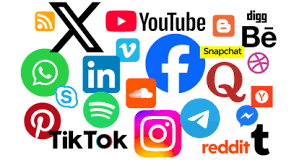 Reader Influencers
Reader InfluencersThis idea never occurred to me and I’m looking forward to doing research and coming up with a specific plan. The newsletter advises connecting with influential BookTokers, BookTubers, and Instagrammers because doing so can generate authentic buzz and reviews. First, I’ll need to determine who to reach out to, and then I need to make sure I have materials to send; copies of the book, social media pictures and videos, etc.
As for my health, I’ve GOT TO get back into walking and not treating my body like a garbage disposal. I’m not planning on embarking on anything new, but I need to get back into my healthier habits and routines.
Did your resolutions survive Quitter’s Day? Did you make any for 2025? Comment and join the conversation 
The post Outsmarting Quitter’s Day appeared first on mandi bean: writer.
December 16, 2024
The End of the Year: 2024
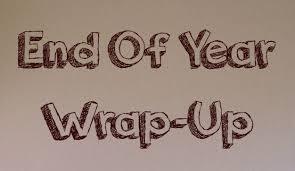
It’s the last month of the year, and that can cause people to become reflective and more introspective.
I am no exception.
Almost ten years ago, I bought my first home. It was an adorable, old home with tons of character. It took years for me to close: there were so many obstacles and hiccups. It was a labor of love, truly. And it was more house than I needed. There was lots of space to fill — and I filled it. I filled it with books and throw blankets and wall art and my grandma’s furniture and pieces of furniture I bought with my own money, with my own money from the career I’d dreamed about.
And the house was going to need a lot of money. It was built nearly a century before, so it was lacking some of the modern conveniences. The basement leaked and the heat didn’t really work. The windows had sash weights and some of the wiring was actually insulated in cloth. But it was mine and I loved it. I was going to make it my forever home; I took out a sizeable loan to waterproof the basement.
But then the pandemic came. And my niece drowned. And I was planning on living and studying in Ireland for a year. My life blew up and my plans changed. I sold the house to pay for tuition, for room and board, and for living expenses in Ireland. And with the turmoil in my family, I wasn’t sure where I’d be living, if I’d return to New Jersey or set down new roots in Florida (a conflict that still troubles me).
My dad paid for my storage unit for about a year. When I came back to the States, we moved my stuff into a trailer onto a friend of the family’s property. And there it sat. For years. It sat there while I lived in Florida, in Seaside Heights, in Mexico, and back to Seaside Heights, from a seasonal rental into an annual rental. The seasonal rental was furnished, and my annual rental is small.
What to do? It’d be difficult to sell used furniture that sat for years from a property I didn’t own. I don’t have a truck; my car, much like where I’m living, is small. I had to let most of it go.

I separated years of my life into separate piles: clothes, trash, electronics and appliances, metal, and wood. I saved some clothes, all of my books, some mementos of family members loved and lost, but I didn’t save much. I simply don’t have the room.
I could write something cliched and trite about how letting go is beautiful, and I will concede there is something pleasantly exciting about starting over, but that sensation is considerably diminished when it’s not entirely your choice.
I don’t want this to be a long, sad complaint because I am very happy. I love my job, I love where I’m living, I’m feeling new confidence about my writing. There are people in my love who continuously and consistently overwhelm me with love, patience, generosity, compassion, and kindness.
Things are good.
At the end of this year, I feel like I’ve reached the end of a race. I feel like I’m doubled over, gasping for breath with my hands on my knees. I’m looking back over my shoulder at how far I’ve come, and though I’m tired and sore, I’m proud and happy.
What will 2025 hold for me?
The post The End of the Year: 2024 appeared first on mandi bean: writer.
November 7, 2024
When a Writer Falls for His Own TRAP
I want to start this post with a disclaimer: I LOVE M. NIGHT SHYAMALAN. I’ve been a fan since the beginning: The Sixth Sense, Signs, The Village. I’ll argue that Unbreakable, Split, and Glass comprise one of the best trilogies of all time. I even have love for the universally panned Lady in the Water; I think it’s a masterclass in metafiction. And The Happening? There are sequences from that film that will never leave me.
I need to say all that because my criticism of his latest film Trap comes from a place of love. It really does.
As part of continuing my seven healthy habits for a successful writer, I’ve been consuming A LOT of media. I finished reading The Eyre Affair by Jasper Fforde and started reading The Joy Luck Club by Amy Tan. Today, I watched Hulu’s documentary about Bruce Springsteen and the E Street Band (incredible!) and I finally got around to watching Trap. It’s been on my list for a while because I respect Shyamalan as a storyteller so much, and because I’ve loved Josh Hartnett since The Faculty. I had such high hopes for this film.
 Seriously, though; the amount of fan fiction I wrote about Josh Hartnett’s character Zeke and his car … embarrassing.
Seriously, though; the amount of fan fiction I wrote about Josh Hartnett’s character Zeke and his car … embarrassing.Shyamalan is known for his thrilling twists, but those plots work largely because of the believable dynamic between his characters. I would argue that is what’s missing from Trap. The film follows Cooper, brilliantly played by Josh Hartnett, a psychopath masquerading as a family man who takes his daughter, Riley, to a concert to celebrate her report card. However, authorities figure out “The Butcher,” which is Cooper’s moniker, is going to be at the concert and set a trap.
It’s an interesting premise with built-in tension — how can Cooper leave the concert without being detected?
To manage that, Shyamalan unfortunately keeps writing himself into corners. By that, I mean he creates situations with only one or two possible outcomes that hold even a modicum of verisimilitude, which Shyamalan ignores. Instead, he presents his audience with contrived plot elements, testing an already strained willing suspension of disbelief. So the killer escapes just a few times too many and in ways that are increasingly unbelievable.
And Josh Hartnett needs a worthy adversary. His acting is great, but it can’t carry the entire narrative, and it can’t patch up some gaping plot holes. Why would the FBI tell a pop star about the murderer’s psychological profile? Is it believable she would pretend to be the murderer’s mom to set him off? And who is this girl? I saw a review on Instagram that accused Shyamalan of just using the film as a vehicle to start his daughter’s career — she plays the pop star. That may have colored my viewing, but it really does seem the only reason for the film’s third act. I think it might have worked with different casting, if the pop star was someone the audience was familiar with. It was hard for me to believe this pop star could take down Hartnett’s increasingly unstable villain.
Shyamalan likes to keep the audience guessing. However, with Trap, Shyamalan left me rolling my eyes. It was like he was cheating to win, inventing scenarios that were essentially implausible so the audience would be “surprised.” I would argue that’s when the writer sacrifices the efficacy of the narrative for a gimmick, or when the writer writes himself into a corner, or falls for his own trap.
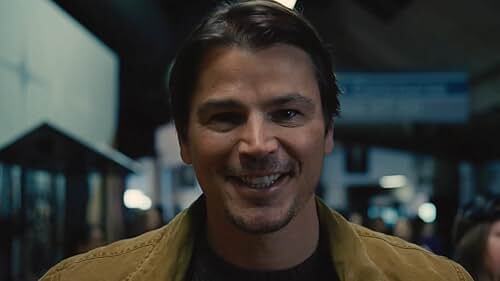 He seriously played this character so well. I would have totally loved a whole movie just about him becoming The Butcher.
He seriously played this character so well. I would have totally loved a whole movie just about him becoming The Butcher.The post When a Writer Falls for His Own TRAP appeared first on mandi bean: writer.
October 30, 2024
New Month, New Me

It’s been nearly a month since the last time I updated this blog, and that’s disappointing. It’s an accurate indication that my writing life has become stagnant. I’ve made little to no headway on my work in progress, I haven’t submitted to any literary agents or small presses lately, and I haven’t even managed to update my journal daily. All that frustrates me, so I’m going to make a renewed vow to prioritize my writing life. And luckily it coincides with November – National Novel Writing Month.
Serendipitously, it also coincides with my discovery of this article from Writer’s Digest, titled “7 Healthy Habits for Writers to Find Success” by Chris Saunders.
Write every day.This is Saunders’ first suggestion and it is also my priority number one. I like to use not being “inspired” as an excuse for not writing, but the work needs to get done whether I feel like it or not. It would also be helpful to step away from the all-or-nothing mentality. If I don’t sit down and write a novel, that’s okay! And it doesn’t have to be all about my work in progress. Saunders recommends having several writing projects on the go concurrently, so “…when the words dry up on one, switch to another.” The writing session doesn’t even have to be for long. Saunders suggests “…to organize your thoughts and develop an idea of what you want to write beforehand so it saves ‘thinking’ time when the opportunity comes to sit down at the computer.” I also want to practice what I’m constantly preaching to my students and eliminate distractions. Namely, that means leaving my cell phone in another room.
Cultivate a routine.
As a public educator, I thrive on routines. I’ve gotten mine down pretty well. I have coffee in the morning and head to work. After school, I walk five miles and eat dinner. Instead of vegging out and mindlessly watching true crime documentaries I’ve already seen a thousand times over, this is where I’ll write or read or both. On Saturdays, I want to make regular trips to bookstores and cafes and the local library. I’m plan on resting completely on Sundays.
Read widely.
Uncle Stevie — the one and only Stephen King — famously said a writer can’t be a writer unless she is also a reader. It must be part of the regular schedule. Saunders also suggests to “…but read everything you can get your hands on.” Book clubs can help with broadening literary horizons for any reader. Saunders goes on to say, “Study the various techniques and styles you come across, and make notes about what works and what doesn’t. You can learn just as much from bad writing as you can from good writing. All this provides not only a literary education but a solid grounding for your own work. Finally, visit or revisit some of the greats and try to understand what makes them great.” I’m also endeavoring to annotate more consistently when I’m reading.
Consume media.
Saunders bluntly states, “Consume all media. That means magazines, TV shows, movies, podcasts, radio shows, and websites, especially those which publish content with a cohesive narrative structure. Study the plot, the characterization, the pacing, and the dialogue. If you have never read poetry, read some poetry.” Consuming media can also benefit a writer’s blog. Saunders points out, “Writing opinion pieces or short reviews of the things you see or hear is not only a great way to flex your writing muscles, but also provides a steady stream of content for your blog or social media channels.”
Keep records.
“Take copious notes;” that’s why I journal. I also save every journal that I fill. Saunders offers some words to live by: “Life is happening all around you, so document as much of it as you can. You never know when inspiration will strike or when something seemingly mundane will ‘land’ and provide a spark.” I carry a notebook and pens with me wherever I go. I wholeheartedly agree with Saunders when he advises, “When you have an idea for a story, or a snippet of dialogue spontaneously forms in your mind, write it down immediately. Don’t trust yourself to remember it later.” If I don’t write it down, I will definitely forget.
Be organized.
I track my submissions and keep all my creative pieces on my laptop and in a drawer. I’m also a sucker for a solid to-do list. Saunders also says, “Physically write your to-do list on paper, or print it out and pin it somewhere you will see it multiple times a day. On the wall of your office, for example, or on your refrigerator door. This makes it more tangible.” This is where my love for Post-Its becomes beneficial instead of just … weird.
Create clear goals.
I want a literary agent. It’s been over a year since I finished Lightning Strikes and I have received many, many rejections. So by this time next year, I hope to have secured a small but prestigious press for publishing my manuscript. But drinking coffee and smoking cigarettes while reading in a cozy scarf and thick-framed glasses will not make me a writer. Saunders says, “You should always aim to work smarter, not harder, but as a writer, you won’t get very far if you don’t write. Be firm but realistic.” No matter what. the writing needs to get done. Using a reward system can benefit productivity, and it’s always a good idea to be good to yourself.
I do have a blog post or two dedicated entirely to preparing for NaNoWriMo (National Novel Writing Month). Between that and these seven habits, I believe my writing life will change for the better.

The post New Month, New Me appeared first on mandi bean: writer.



